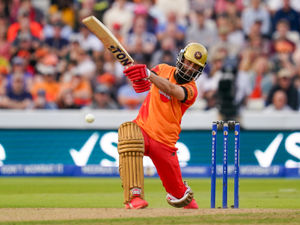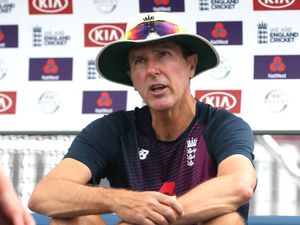England could be even more 'adventurous' says captain Ben Stokes
Ben Stokes has revealed England could be even more “adventurous” in their approach in the second Test against Pakistan in Multan.
England thrilled a packed Rawalpindi stadium in the first Test of the series, clinching a famous 74-run win after taking five wickets in the final session.
The tourists had already battled a viral infection in the camp ahead of the game and were fighting against the rapidly-fading light when Jack Leach took the match-winning wicket. For Stokes, the smog and fog swirling around Multan could prompt yet more innovative tactics in the game which gets under way tomorrow.
“In this Test, if it does pan out the way that it could potentially, with the late start and early finish, we could end up having only 300-350 overs in the Test match,” he said.
“We might have to get even a bit more adventurous with what we do. We’ll see.”
The England captain explained that on Tuesday morning it was not possible to see the boundary from the strip due to the fog at the Multan Cricket Stadium, with play not possible until later in the day.
The reduced overs would usually limit the possibility of either side winning the game, but Stokes has yet to draw a Test match since he took over the captaincy full-time.
When pressed about his aversion to the draw, he said: “If it rains for four days, good luck trying to get a result out of a Test match over one day, or two days, but if you get a good amount of time out of a Test match I’ll always be trying to plan, and talk to Baz (Brendon McCullum) about ways in which we can try and force a result, either way. You might see, especially in England with the weather that’s around, something even more out there, even more than you’ve seen here. I might declare without batting one day, who knows?”
Under Stokes and head coach McCullum, England have revolutionised Test cricket, a feat epitomised by their second innings at Rawalpindi.
England hit 264 runs in just 35.5 overs at a run rate of more than 7.5 to set Pakistan a daring 343 to win.
Stokes explained his approach and his desire to put his own spin on a format that had gone largely unchanged for many years.
“When I got the opportunity to lead England out I wanted to do it in a way which I thought could work and the lads have responded really well to that,” he said.
“Test cricket has been pigeon-holed for so long, for such a long time as to how it should be played, how you need to operate, whether that be on the field or off the field, how you prepare. Everyone’s played enough cricket and understands their game enough that if you just give the responsibility to the individual to get ready, why can’t that work? Why not?”





